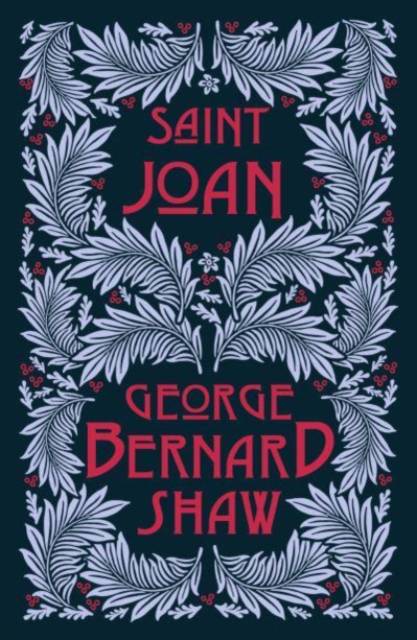
- Afhalen na 1 uur in een winkel met voorraad
- Gratis thuislevering in België vanaf € 30
- Ruim aanbod met 7 miljoen producten
- Afhalen na 1 uur in een winkel met voorraad
- Gratis thuislevering in België vanaf € 30
- Ruim aanbod met 7 miljoen producten
Zoeken
Omschrijving
The life of fifteenth-century heroine Joan of Arc is the stuff of legend, and her cruel death (burnt at the stake aged just nineteen) led to her being declared a martyr, granting her an extraordinary legacy.
Following her canonisation in 1920, and against a history of overly romanticised retellings of the story, Bernard Shaw put pen to paper to give a more accurate account, without resorting to demonising her persecutors; as he writes in his preface, 'there are no villains in the piece'.
It was an immediate success, securing him the Nobel Prize for Literature, although critics were initially divided by this frank approach - T.S. Eliot was outraged, saying, 'instead of the saint or the strumpet of the legends... he has turned her into a great middle-class reformer.' Nonetheless - or perhaps even because of this controversy - Saint Joan is considered one of Shaw's finest and most important plays.
This edition has an introduction by Simon Mundy, who has spent several years as Vice-President of PEN International's Writers for Peace Committee, and extensive explanatory notes.
Following her canonisation in 1920, and against a history of overly romanticised retellings of the story, Bernard Shaw put pen to paper to give a more accurate account, without resorting to demonising her persecutors; as he writes in his preface, 'there are no villains in the piece'.
It was an immediate success, securing him the Nobel Prize for Literature, although critics were initially divided by this frank approach - T.S. Eliot was outraged, saying, 'instead of the saint or the strumpet of the legends... he has turned her into a great middle-class reformer.' Nonetheless - or perhaps even because of this controversy - Saint Joan is considered one of Shaw's finest and most important plays.
This edition has an introduction by Simon Mundy, who has spent several years as Vice-President of PEN International's Writers for Peace Committee, and extensive explanatory notes.
'He was a Tolstoy with jokes, a modern Dr Johnson, a universal genius who on his own modest reckoning put even Shakespeare in the shade.' - The Independent
Specificaties
Betrokkenen
- Auteur(s):
- Uitgeverij:
Inhoud
- Aantal bladzijden:
- 258
- Taal:
- Engels
Eigenschappen
- Productcode (EAN):
- 9781913724658
- Verschijningsdatum:
- 25/01/2022
- Uitvoering:
- Paperback
- Formaat:
- Trade paperback (VS)
- Afmetingen:
- 129 mm x 198 mm
- Gewicht:
- 231 g

Alleen bij Standaard Boekhandel
+ 23 punten op je klantenkaart van Standaard Boekhandel
Beoordelingen
We publiceren alleen reviews die voldoen aan de voorwaarden voor reviews. Bekijk onze voorwaarden voor reviews.











